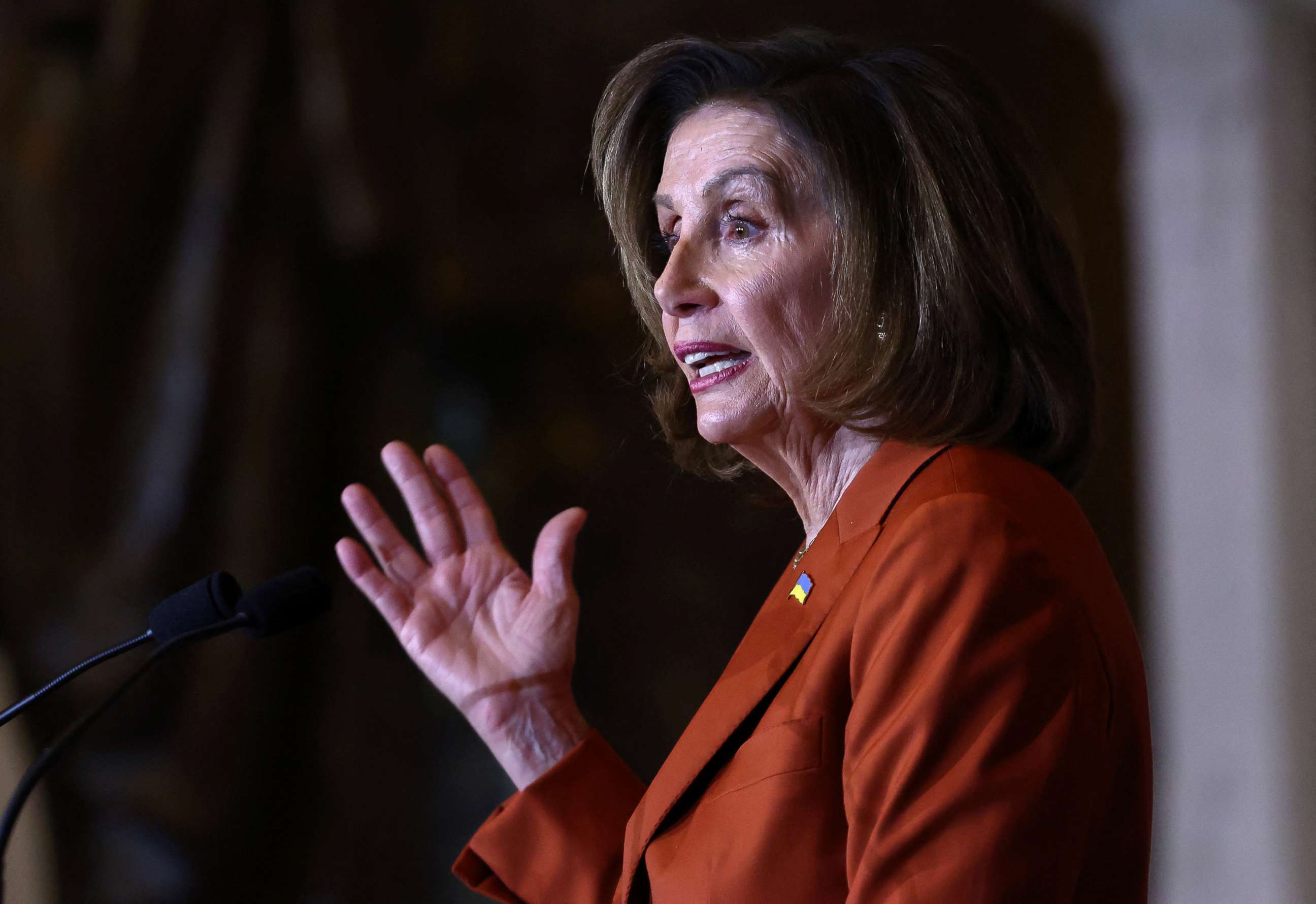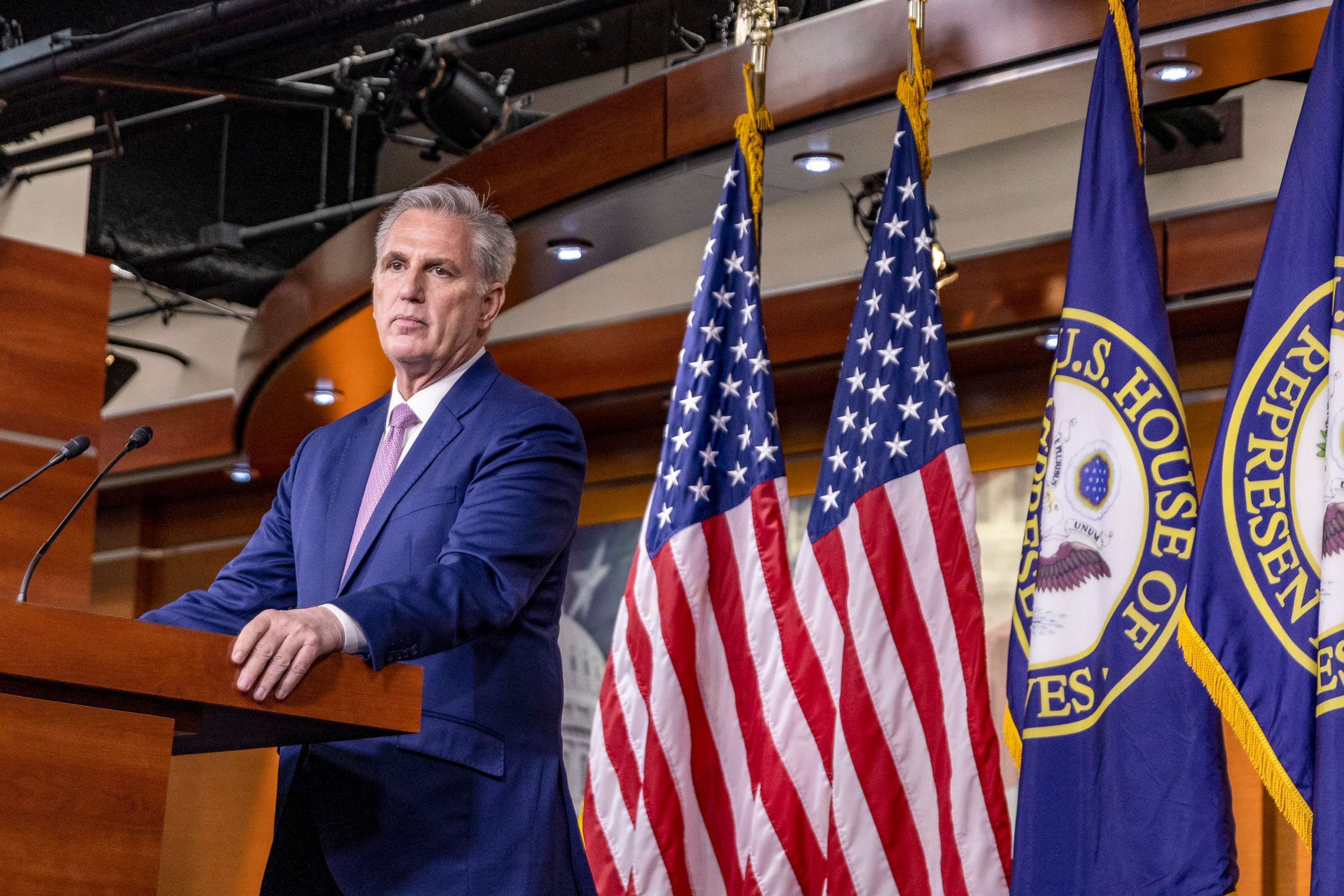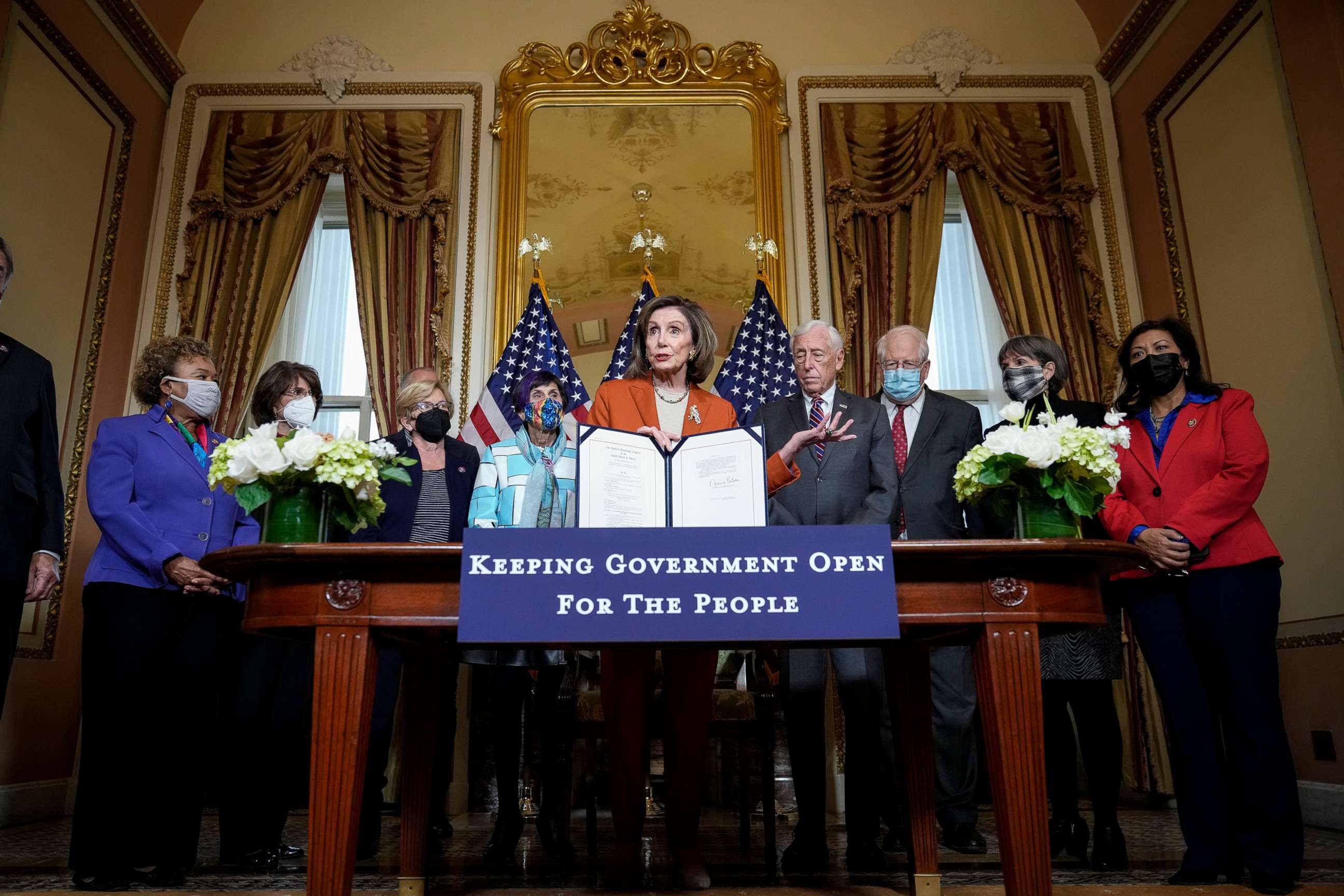COVID politics reach funding tipping point: The Note
Pelosi called dropping pandemic funding "heartbreaking."
The TAKE with Rick Klein
The politics of COVID moved faster than the trucker convoy, which got to Washington a good week or two after it might have left a mark on the policy conversation -- not to mention the local traffic.
It also moved too fast for congressional Democrats and the White House. House Speaker Nancy Pelosi was forced to drop what she called a "deeply needed" $15 billion pandemic funding package requested by the White House from a major spending bill.
"It is heartbreaking to remove the COVID funding, and we must continue to fight for urgently needed COVID assistance, but unfortunately that will not be included in this bill," Pelosi told her fellow House Democrats on Wednesday.

The request's inclusion in a far larger government spending and Ukraine-aid measure was caught in complicated political currents around unspent monies, inflation worries and deficit spending.
Still, the broad takeaway is a stark one: The Biden White House was unable to get what it labeled an "urgent request" for supplies, vaccines and treatments through the Democratic-controlled House. This time, there's no blaming Sen. Joe Manchin or Senate rules.
Washington's priorities, of course, have been upended by Russia's invasion of Ukraine, along with spiraling gas prices and economic fears. A new government report coming Thursday is expected to find sky-high inflation extending through February.
As it happens, Thursday also marks one year since the $1.9 trillion American Rescue Plan won final passage -- a high-water mark for Democrats' unity on spending to fight COVID. Those days are long gone.
The RUNDOWN with Averi Harper
While House GOP Leader Kevin McCarthy doesn't split with former President Donald Trump on much, Russian President Vladimir Putin is where he appears to draw the line.
When asked by a reporter Wednesday if he agreed with Trump's assessment of Putin's moves as "genius," McCarthy made his stance clear.
"I do not think anything is savvy or genius about Putin. I think Putin is evil. He is a dictator and I think he is murdering people right now," McCarthy said.
It's a rare deviation for McCarthy, who stood by Trump after Jan. 6, visiting the former president at his Florida residence, Mar-a-Lago. McCarthy's decision to publicly disavow Trump could also be an indication that Trump's influence is waning. McCarthy has walked a fine line on Trump as he needs support from the far-right wing of his party if he hopes to become Speaker of the House should the GOP take control of the chamber in November.

The strength of a Trump endorsement has also been in question. A Fox News poll shows Georgia Gov. Brian Kemp leading GOP primary challenger David Perdue, who is endorsed by Trump. In North Carolina, Trump's endorsement of Rep. Ted Budd for Senate hasn't cleared the crowded field or given Budd a clear advantage.
Plus, Trump's attempt to weigh in on a Wyoming voting bill that would have prevented voters from changing their affiliation on primary day also failed. The policy was seen as something that could have hurt embattled Rep. Liz Cheney, who will likely need the support of Democrats and independents to stave off her Trump-backed challenger in the state's open primary.
The TIP with Ben Siegel
House Democrats were scheduled to travel to Philadelphia on Wednesday afternoon, with plans to huddle with Cabinet secretaries and hear from President Biden as they work to tout their agenda and defend their slim House majority.
But a dispute over how to pay for new COVID-19 programs forced Democratic leaders to rewrite spending legislation, delaying the caucus' departure from Capitol Hill to accommodate the updated voting schedule.

While discussions to forge ahead with the retreat or reschedule the caucus huddle were ongoing Wednesday night, Democrats, regardless, are facing headwinds in keeping the House in November.
Despite Biden's post-State-of-the-Union bump in approval ratings and the party doing better than expected in congressional redistricting, inflation, the shifting dynamics of the coronavirus pandemic and the havoc the Russian invasion of Ukraine has wreaked on energy prices represent a combustible and fluid set of issues for the Democrats -- and Republicans -- to grapple with heading into campaign season.
NUMBER OF THE DAY, powered by FiveThirtyEight
66. That's the percentage of Americans who approve of the U.S. government's economic sanctions on Russia in the YouGov/Economist's latest weekly poll. But as FiveThirtyEight contributor Julia Azari writes, that's hardly an indication that Americans see eye-to-eye on how best to handle the crisis in Ukraine. Rather, the debate about how America should proceed in Ukraine has been subsumed by our larger culture-war politics which, Julia argues, is a real danger for U.S. foreign policy.
THE PLAYLIST
ABC News' "Start Here" Podcast. Start Here begins Thursday morning with ABC's Ian Pannell on the latest attacks on Ukrainian hospitals and ambulances. Then, ABC's Aaron Katersky breaks down growing concerns for Ukraine's nuclear power plants. And, ABC's Deirdre Bolton details President Biden's new crypto executive order. http://apple.co/2HPocUL
WHAT YOU NEED TO KNOW TODAY
Download the ABC News app and select "The Note" as an item of interest to receive the day's sharpest political analysis.
The Note is a daily ABC News feature that highlights the day's top stories in politics. Please check back tomorrow for the latest.




